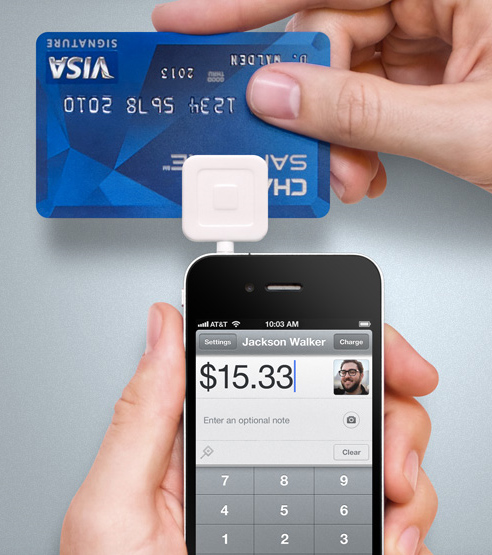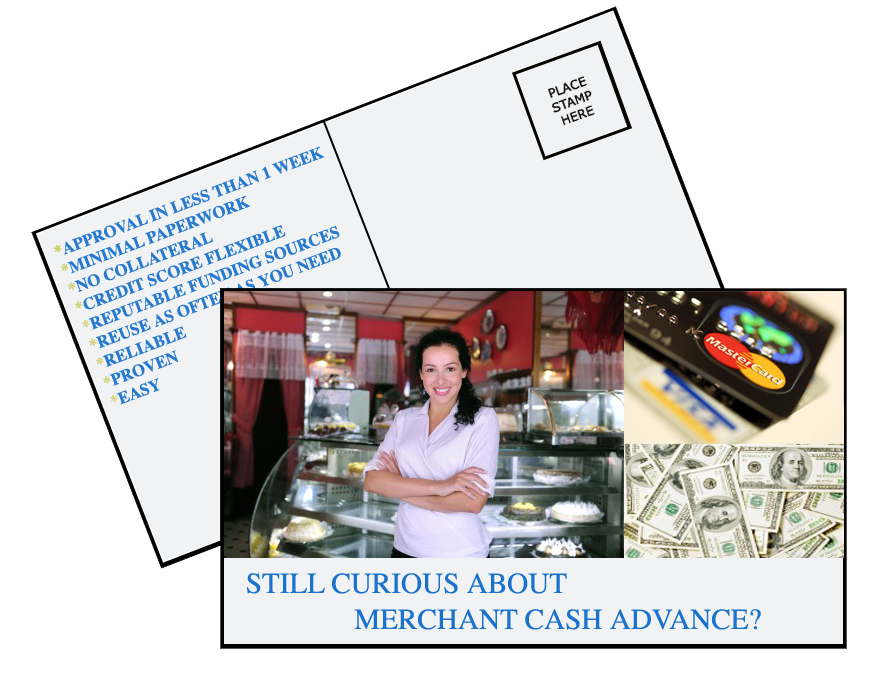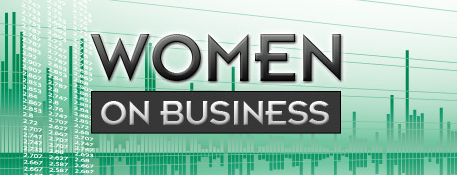MPR Authored
Summary of New 2010 Americans with Disabilities Act ATM Standards
August 23, 2011
Wondering when the local ATM machine would finally accomodate your needs? There is good news for you!
 On July 26, 2010, on the 20th anniversary of the Americans with Disabilities Act (ADA), the Department of Justice announced rules updating the ADA standards governing the construction and alteration of facilities, including places of public accommodation, commercial facilities and state and local government facilities.
On July 26, 2010, on the 20th anniversary of the Americans with Disabilities Act (ADA), the Department of Justice announced rules updating the ADA standards governing the construction and alteration of facilities, including places of public accommodation, commercial facilities and state and local government facilities.
The new standards adopt guidelines established by the Access Board, an independent federal agency that develops and maintains design criteria to ensure access for people with disabilities.
New standards include new technical specifications for speech output guidance, keypad controls, display screens and Braille instructions for impaired consumers.
DOWNLOAD THE FULL 7 PAGE PDF FILE SUMMARY HERE
BY FIRST DATA AND STAR
New Look for Merchant Processing Resource
August 23, 2011
deBanked has officially updated the site’s look and feel. We have moved away from the gray background/white text to make our articles and content easier on the eye. We hope you agree with the changes and would appreciate any comments or feedback. E-mail us at webmaster@merchantprocessingresource.com
Thanks!
Behind on Rent? It May be Too Late to Obtain a Merchant Cash Advance
August 23, 2011
There are numerous uses for a Merchant Cash Advance(MCA) but catching up on rent payments isn’t one of them. Growing a business can strain cash flow. Stretching out payment terms with vendors, overdraft charges, and pulling funds out of a personal account can tend to be part of normal operations. As long as this is ‘business as usual’, MCA Providers are readily available to provide funds.
Stretching out payments is one thing, but not making them at all is another. An underwriter shared this with us. “A restaurant in Arizona had been putting up consistent sales figures 6 months in a row, but they never had more than $100 in the business account. This would’ve been fine except they hadn’t paid their food supplier in 5 months. Before we could even make a decision on the account, the food supplier cut them off and filed suit against them. They had to close 3 days later.” There is a very clear line that defines what’s sustainable and what isn’t.
That particular MCA provider did not have a policy to conduct references with suppliers and had narrowly avoided what would’ve been an immediate default. When we mentioned that to the underwriter, he stated, “Well we do check to make sure they’re current on rent payments.”
That is one underwriting factor that is industry wide, the requirement to be current on business property rent payments. See… there’s a slight little issue that can impede a MCA provider from receiving their purchased sales, and that is if the business is kicked out by the landlord. Being current on payments isn’t scrutinized to the extreme, but rather put into the context of risk.
Making a payment on the 10th, when it was actually due on the 5th might make your landlord cranky but if you’ve been there long enough, there’s probably not any danger. Being one month late can also be accepted by an underwriter so long as the rent payment amount is not excessive. Tips from the underwriter, “If you pay $7,000 a month in rent and you are willing to take $6,000 in funding, we’re going to know most of that is going towards rent and wonder how you will be able to make the following month’s payment on your own.” On the other hand, some business owners have been at a certain location for so long or are so big, that being 30 days behind is business as usual. “If the business has been there 20 years and they make payments a month or two late every time, there really isn’t any indication of a negative situation. Also we’ve seen huge clubs that generate $400,000 a month but are sloppy with their books. These are the kind of businesses that will go 1-2 months without paying and then write out a check for the balance when they get around to it. It can freak out the landlord but as long as they bring in the cash, they’re not going anywhere.”
A general consensus in the industry is that being past due by 2 months and more enhances the risk significantly. Anyone can have a slow season or a bad month but there comes a point when the numbers stop making sense. If 2 months rent is $10,000 and a business sells $13,500 of their future sales today to obtain that $10,000, they’ll be caught up for now. But if the revenue being generated per month doesn’t increase, then they won’t be able to make the following month’s rent payment again. Therein lies the problem because not only is there another rent payment due but a percentage of their sales are going back to the MCA provider, amplifying the strain.

This isn’t to say that MCAs make problems worse, any type of funding would. You could give this same business a $10,000 loan with 0% interest payable in installments over 5 years and they would face the same dilemma. Unless sales improve significantly, there is nothing that can be done for them. Every business experiences a vulnerable phase but if it doesn’t make it over the hump, it’s probably time to call it quits.
Unfortunately, underwriters have encountered the late rent issue plenty of times in the past few years. These are businesses that were affected by the recession and have been on the decline for a long, long time. There are usually other factors that indicate financial stress by this point, such as poor credit. Our underwriting friend shared, “It’s tough to see that some businesses are 2 – 7 months behind on rent and are reaching out for anything at this point. If we approve them, we’re looking at a probable loss. We have applicants assume that since our funds are more expensive than a bank, we’ll pretty much tolerate any level of risk. That’s totally not the case at all. Unlike SBA loans, we have no government guarantees on defaults. We have to answer to private investors at the end of the day.”
MCA providers are only interested in transactions where both parties benefit. Acquisition and overhead costs are so high, that their model only works if they forge long term relationships with clients. There are some simple ways to start this off: Use the funds to buy bulk orders of inventory, advertise, upgrade equipment, make repairs, hire new employees, or open a 2nd location. This is the model that has propelled Merchant Cash Advance to the forefront of the small business world. It’s easy, it’s fast, and it makes sense for both parties. But there is one way to ensure a long term relationship does not happen and that’s if the front door is padlocked. Behind on rent? It’s probably too late…
-The Merchant Cash Advance Resource
http://www.merchantcashadvanceresource.com
Image Copyrighted (c) 123RF Photos
Debit Card Costs May be Put on the Consumer: Don’t Make Us Pay
August 23, 2011Originally published on February 18, 2011.
 Back on December 17th, 2010, we published an article outlining the alarming terms of Debit Card Fee Reform. If you haven’t read up on what’s happened, the Federal Reserve has imposed a pricing cap on the cost a retailer pays to do debit card transactions. It’s scheduled to go into effect in July, 2011. The cap is so severe, that it would no longer be financially viable for banks to continue issuing them.
Back on December 17th, 2010, we published an article outlining the alarming terms of Debit Card Fee Reform. If you haven’t read up on what’s happened, the Federal Reserve has imposed a pricing cap on the cost a retailer pays to do debit card transactions. It’s scheduled to go into effect in July, 2011. The cap is so severe, that it would no longer be financially viable for banks to continue issuing them.
There is of course one solution that would allow banks to continue debit processing and that’s to push the transaction costs to the other party involved, the consumer. This would mean that as a result of the Wall Street Reform Act, consumers will be paying more than ever. How’s that for unintended consequences!
Some people aren’t happy so we’ll cut to the chase and let you know that we found a special gem of an organization, www.dontmakeuspay.org. This website is providing users with up to date information on the new debit card reform law, as well as the proper tools to speak out to politicians. They provide a prewritten letter and automatically address it to the U.S. Senators and Representatives in your state. The full language of it is below:
“As your constituent, I am writing to urge you to stop the debit card interchange rule before it harms debit card users like me.
The only beneficiaries of this harmful rule are retailers, who will take home an additional $14 billion in profits – and consumers will be left to deal with the consequences. The rule does not require that retailers pass along even one penny of their savings to customers. Meanwhile, banks, forced to lose money on debit interchange transactions, will be forced to compensate by increasing fees for deposit customers.
The fact is that retailers receive tremendous benefits when they accept debit cards for payment, including higher sales, lower costs and guaranteed payment. That’s why millions of retailers have chosen to accept debit cards – and that number is growing.
In effect, consumers like me will end up paying for a payments system that provides retailers with extraordinary value.
I don’t want to be forced to pay higher fees, give up my rewards, and lose my free checking account – just so retailers can have an extra $14 billion in profits.
Congress should be in the business of protecting consumers, not forcing us to pay for the costs of giant retailers.
Please repeal this harmful rule before it’s too late.”
We are of course in favor of small business, but it is unlikely that they will reap the supposed benefits either. This is a lose-lose-lose-lose deal. (I think we forgot another ‘lose’ or two). If you’re in favor, sign the letter!
We’ll keep you updated on the developments of this law.
-deBanked
Image Copyrighted by: 123RF
4 Additional UCC Filing Names Used by Merchant Cash Advance Providers Added
August 23, 2011
Our database of Merchant Cash Advance UCC filing names has been updated to reflect 4 more companies. They are:
- BizFunds LLC – Cleveland, OH
- Max Merchant Funding – Chevy Chase, MD
- Mother Fund – Rockwall, TX
- Smart Choice Capital – Brooklyn, NY
Contact inforrmation and UCC names can be found HERE.
Merchant Cash Advance Application and Contract Archive
August 23, 2011
The Merchant Cash Advance Resource has started compiling applications, brochures, and contracts from resellers and funding firms. All files are already in the public domain but users may find it convenient to browse files all in one place. If you would like your application or brochure to be included, you may e-mail it to webmaster@merchantprocessingresource.com
Go to the Merchant Cash Advance File Archive Now
-The Merchant Cash Advance Resource
Square Eliminates 15% Transaction Fee
August 23, 2011
According to their Twitter Feed, Square, the iPhone, Android, and iPad Card Reader has announced the removal of the 15 cent transaction fee. The card swipe rate will remain at 2.75%. For low ticket, high volume businesses, this will significantly improve margins.
About
Square is a revolutionary service that enables anyone to accept credit cards anywhere. Square offers an easy to use, free credit card reader that plugs into a phone or iPad. It’s simple to sign up. There is no extra equipment, complicated contracts, monthly fees or merchant account required.
Co-founded by Jim McKelvey and Jack Dorsey in 2009, the company is headquartered in San Francisco with additional offices in Saint Louis and New York City. They can be found at: www.squareup.com

– deBanked
Still Curious About a Merchant Cash Advance? The Last Article You Will Ever Need to Read
August 23, 2011
You’ve seen the advertisements, received calls with offers for it, researched it online, but you’re still not sure about Merchant Cash Advance(MCA). Every business needs capital but bank loans just aren’t available. Alternative funding sources are out there and they spend millions of dollars every year trying to reach you. The word “alternative” usually causes business owners to put their guard up. Basically, all non-bank loans warrant skepticisim until proven innocent. We here at the Merchant Cash Advance Resource understand your concerns and would like to answer your questions once and for all. We are not a funding source, reseller, or advertiser and thus maintain an independent perspective on the the MCA industry.

image is the sole property of www.merchantprocessingresource.com
- How Legitimate is it?
- Who is Really Using it?
- How Big is the Industry?
- How Widespread is it?
- What is the Application and Underwriting Process?
- Who are the Most Well Known Providers of it?
- Who is Regulating it?
- What Happens if you Default on it?
- How does it Compare to an SBA Loans?
How Legitimate is a Merchant Cash Advance?
The purchase of future credit card sales(Merchant Cash Advance or MCA) has been mainstream since 1998. At that time, Kennesaw, Georgia based funding source AdvanceMe, held the patent rights to a process known as split funding. The patent was later invalidated and AdvanceMe was immediately joined by industry veterans AmeriMerchant, First Funds (now Principis Capital), Merchant Cash and Capital, Business Financial Services, and Strategic Funding. All of these firms have been operating since before 2006. As of 2011, there are now nearly 40 documented direct providers of capital.
MCA funding providers are backed by big name hedge funds, a few at one point by well known investment bank, Goldman Sachs. MCAs have frequently popped up in the news and are openly endorsed by some of the largest payment networks in the world. See for yourself:
 Feb. 11, 2011 – 10 Reasons to Start a Business This Year
Feb. 11, 2011 – 10 Reasons to Start a Business This Year
![]() Sept 1, 2009 – Enterpreneurs Turn to Alternative Finance
Sept 1, 2009 – Enterpreneurs Turn to Alternative Finance
 Apr. 2009 – Merchant Cash Advance Financing: The Good, The Bad, and The Ugly
Apr. 2009 – Merchant Cash Advance Financing: The Good, The Bad, and The Ugly
 Brochure and advertisement directly From First Data, the largest merchant acquirer in the world.
Brochure and advertisement directly From First Data, the largest merchant acquirer in the world.
![]() Advertisment and endorsement directly from Chase Paymentech
Advertisment and endorsement directly from Chase Paymentech
 Program is offered by Evo, one of the nation’s largest credit card processors and winner of the 2009 New York Metro Entrepreneur of the Year Award.
Program is offered by Evo, one of the nation’s largest credit card processors and winner of the 2009 New York Metro Entrepreneur of the Year Award.
Who is Really Using a Merchant Cash Advance?
Nearly every major national retail or restaurant franchise has used a Merchant Cash Advance. A small sample of the names include the following:
- Burger King
- Domino’s Pizza
- Hooters
- Subway
- Dunkin Donuts
- Taco Bell
- Denny’s
- Wendy’s
- Meineke Car Care
- Maaco
- Aamco Transmissions
- Curves Fitness
Data was obtained directly from Secretary of State UCC-1 filing records. More information on franchise funding can be read in one of our previous articles, “Who is Really Getting a $250,000 Merchant Cash Advance?“
How Big is the Industry?
Experts have predicted that more than $1 Billion in MCAs are being provided to businesses every year. We conducted independent research and was able to validate the size to be greater than at least $500 Million in 2010. Check out the study at, “Complete Merchant Cash Advance Statistics 2010“
How Widespread is Merchant Cash Advance?
The MCA product is not limited to the United States. This product is actively growing in:
- Canada
- United Kingdom
- Australia
- Hong Kong
- Singapore
For a list of international funding providers, take a peek at our article at, “Merchant Cash Advance – Canada, UK, and Beyond!“
What is the Application and Underwriting Process Like?
EASY! We recently released a guide for merchants that breaks the process down step by step. Download the guide here.
Who Are the Most Well Known Direct Providers of Merchant Cash Advance?
The biggest names are compiled in our Funding Directory. Many are BBB accredited and a few are Ernst & Young Entrepreneur of the Year award winners.
Who is Regulating the Merchant Cash Advance Industry?
Since MCAs are a purchase/sale of future credit/debit card receivables, lending laws do not apply. However, most firms belong to a self-regulating body known as the North American Merchant Advance Association. As stated on their website, NAMAA’s purpose is to promote competition and efficiency throughout the industry by:
- Providing education and professional development to its members
- Developing ethical standards and best practices guidelines for the industry
- Evaluating and providing education regarding the development and enforcement of intellectual property rights that affect the industry
- Evaluating and developing improvements to existing business methods and practices
- Developing industry relevant products and services
- Engaging in regulatory and legislative advocacy
What Happens if You Default on a Merchant Cash Advance?
In the case of a legitimate business failure, the merchant’s assets tend to be protected. There is significantly less at stake than a bank loan. We covered this topic once before in an article here, “What Happens When you Default on a Merchant Cash Advance?“
How Do Merchant Cash Advances Compare to SBA Loans?
The Small Business Administration protects banks from defaults for up to 90% of the losses. Despite this wildly generous guarantee, SBA Loans are considered to rank lower than a MCA. How is this is possible and what specific proof is there? Check out our analysis in, “SBA Loan vs. Merchant Cash Advance.“
Conclusion
The Merchant Cash Advance financial product has been in existence for more than a decade and is legitimate, mainstream, endorsed by reputable names, has been used by the most popular franchises in the U.S., is easy to obtain, offers asset protection that loans cannot, is self regulated, and is in many ways BETTER than a loan guaranteed by the SBA. A MCA may not be right for every business, but if it was just uncertainty that was holding you back, fear no more. This thing is for real…
-The Merchant Cash Advance Resource
http://www.merchantcashadvanceresource.com
webmaster@merchantprocessingresource.com


 Program is offered by NAB, one of the nation’s largest credit card processors and the 2008 Detroit Regional winner of Ernst & Young Entrepreneur of the Year Award.
Program is offered by NAB, one of the nation’s largest credit card processors and the 2008 Detroit Regional winner of Ernst & Young Entrepreneur of the Year Award. 


























